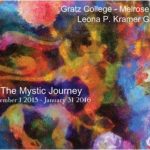Fanny Brewster Present at Upcoming International Association for Analytical Psychology in collaboration with the Associazione Italiana di Psicologia Analitica (AIPA), the Associazione per la Ricerca in Psicologia Analitica (ARPA) and the Centro Italiano di Psicologia Analitica (CIPA) and The University of Rome 3
ANALYSIS AND ACTIVISM: SOCIAL AND POLITICAL CONTRIBUTIONSOF JUNGIAN PSYCHOLOGYROME
4TH – 7TH DECEMBER, 2015 SECOND CONFERENCE
Experiential Workshop
Black Lives Matter: The Psychologically Within and Psychologically Without of Race
and Racism in Jungian Psychology
In 1935, Jung spoke at the Tavistock Lecture II. In referencing the material he gathered from his dream subjects, he stated: “I will not mention the whole dream because it does not matter. It contained of course its personal meanings as well as allusions to impersonal ideas, but I picked out only that one motif”. The one motif to which Jung is referring is that of Ixion in the dream of an African American patient at St. Elizabeth’s Hospital in Washington, D.C. with whom Jung met in 1912. Though Jung’s meeting with this African American man, and fourteen others helped “validate” his theory of the “non-racial” aspect of the archetypes, Jung dismissed the dreamers and all of their associated dream material with this noted exception of Ixion.
The most recent racial violence against African American men legitimized by uniformed police officers, is but just one reminder that race continues to be of great significance. It matters. We are confronted with it in our newspapers, in our analytical rooms and by way of the Unconscious. Jungians, especially American Jungian analysts have had little to say about racism in Jungian psychology. This appears to be the inherited development of a Psychology that began in a heterogeneous society and moved to a multicultural one. The issue of persons of color not engaging with Jungian Psychology, as analysands, analysts or teachers, continues to be an obvious but ignored problem. This problem supports exclusion, a lack of conscious growth and the perpetuation of racism within Jungian Psychology.
This experiential workshop, through Writing Exercises, Dreamwork and Discussion will engage and challenge us to consider the roots of Jungian Psychology in terms of race. We live more and more in a multicultural world. How can Jungian Psychology create more of a dialogue with the “Other”, no longer “Shadow”, but equal in all ways? What are the personal psychological issues that are seen within the individual and in the analytical room as well as without in our societies, which deal with racial relations and tensions? How can we learn to break our silence regarding race and learn the necessary lessons of the transformation of biased, outdated racist thinking and behaviors?





